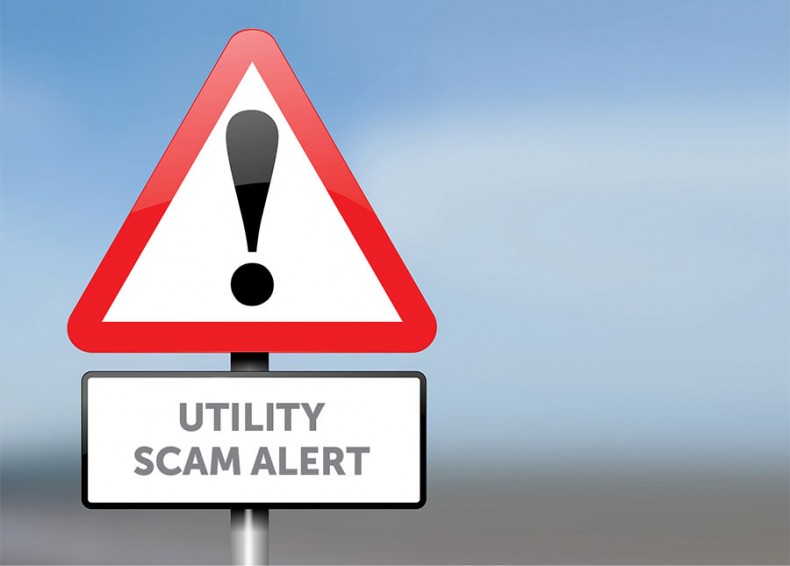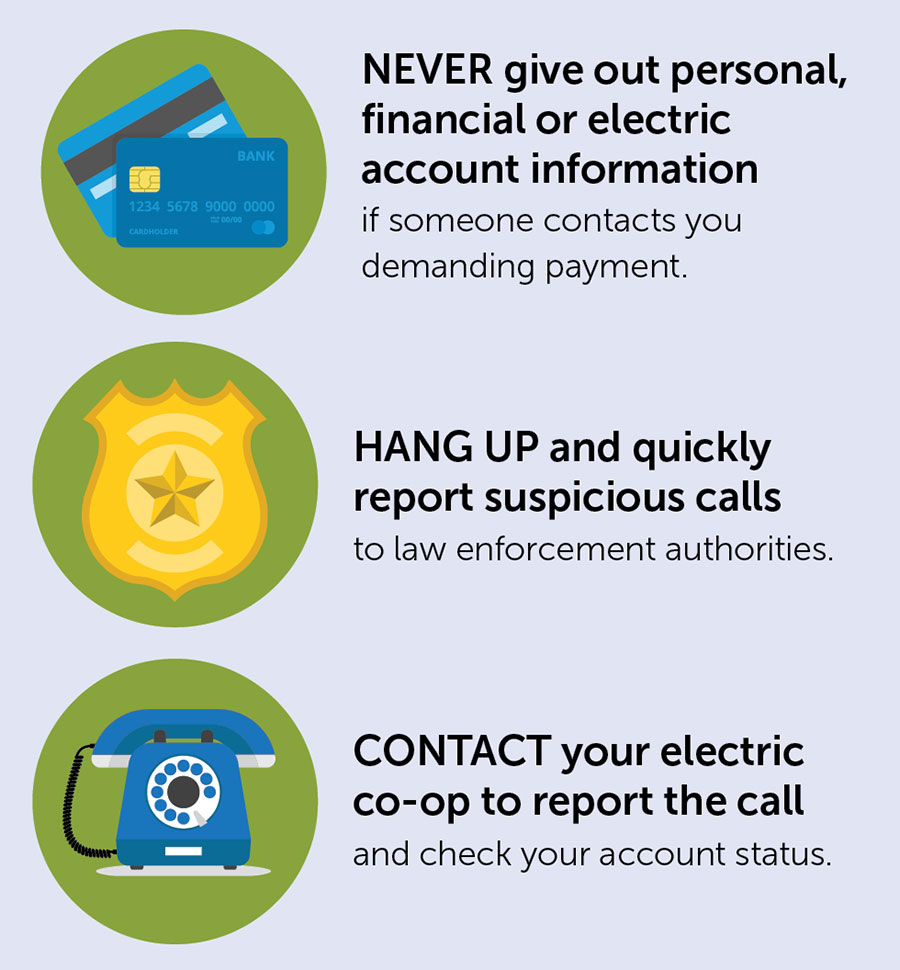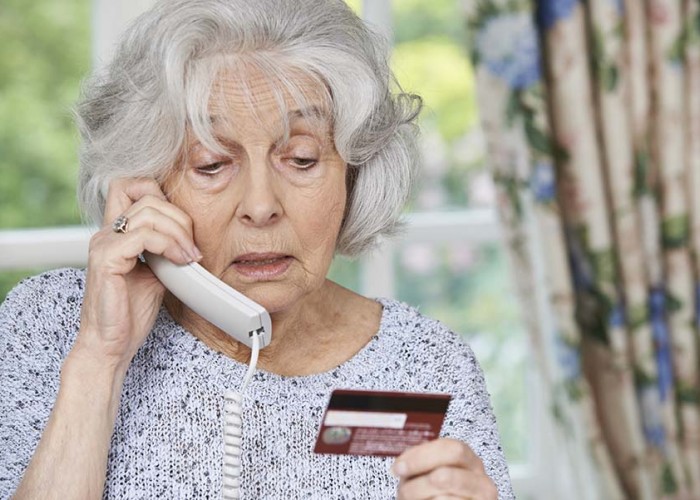Avoid the Most Common Utility Scams
3 tips to avoid pressure from scammer scare tactics

Imposter utility scammers are targeting consumers throughout the country every day. These scammers rely on scare tactics to get their targets to take action, including threats of everything from legal action involving the IRS to turning off power to a home.
Scammers typically use phone, in-person and online tactics to target consumers, according to Utilities United Against Scams (UUAS), a consortium of more than 100 electric, water and natural gas utilities — including the National Rural Electric Cooperative Association (NRECA), the service arm of the nation’s 900-plus consumer-owned, not-for-profit electric cooperatives.
Here are six tips from UUAS to avoid the most common utility scams out there:
1: Hang Up on Calls from Crooks
Hang up if you receive a call demanding immediate payment of a utility bill to avoid disconnection or shutoff. Never be fooled by a phony caller ID; never return a call to the call-back phone number provided by an unknown caller; and never provide any payment or personal information to a caller you do not know. If you have questions, call your electric cooperative at its phone number on your monthly bill or its website. Check out our list of co-ops across the state.
2: Keep Cell Phones Safe
Do not reply to text messages or click on links you receive from people you do not know. Never install apps from text messages, and if you have any doubt about a text message, exercise caution and do not open it.
3: Shut the Door on Scammers
Be suspicious of anyone who arrives at your home or business without an appointment demanding immediate payment, offering utility products or services, or requesting access to your home to check your electrical wiring, water pipes, natural gas pipes, appliances or other utility-related issues. Do not let unknown individuals into your home. If you have any questions, call your electric cooperative.
4: Ask for Proper ID
If you feel you are in personal danger, call 911. Always ask to see a company photo identification, and if you have doubts about a person at your door claiming to be from your utility, call your utility company to verify their information and work to be done before allowing them into your home or business.
5: Delete Suspicious Emails
If you receive an email from an unknown sender or an email threatening action unless a sum of money is paid, do not click any links provided within the email, and do not respond to the email. Simply delete the email or send it to your spam folder. Contact your electric cooperative if a suspicious email includes its logo or other utility-related information.
6: Ensure Website Security
A secure website starts with “https://” — the “s” is for secure. In general, “http:” websites are vulnerable to attack. Remember the best protection against phishing and malware is being careful about what email attachments you open, keeping software updated and maintained, and installing a quality antivirus program.
For more information and the latest updates on utility scams, visit UUAS at utilitiesunited.org. The organization also offers a Consumer’s Guide to Impostor Utility Scams (PDF), available for download online.
-
More ways to stay safe from scams
-
Share this story:






